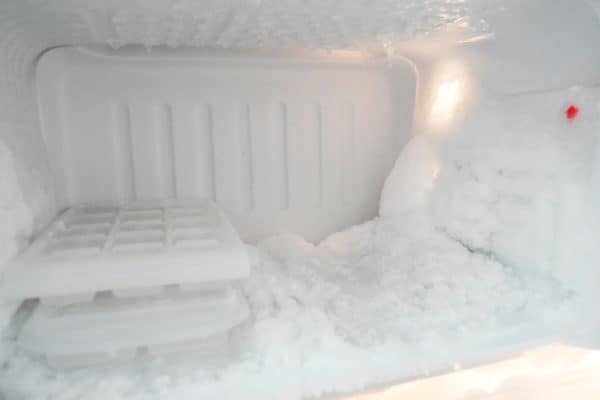Fish oils earned their keep in the health kits of many homes, with some people stashing extra bottles in their cupboards. But keeping it this way can shorten its shelf life, especially if it's in a temperate environment. That’s why some turn to other ways of storage methods, such as freezing. We scoured the internet to find out if freezing makes fish oil last longer.
Fortunately, you can put a whole bottle of omega 3 fish oil supplement capsules in the freezer without negatively affecting its quality. If anything, freezing the fish oil helps in diminishing its fishy aftertaste and foul burps. Additionally, freezing the fish oil may also decrease the likelihood of an upset stomach that affects some people who take it.
Fish oil is highly perishable. So you need to be extremely cautious of when, where, and how you store it. Keep reading as we deep dive into how freezing is easily the best preservation method you can use to keep omega-3 fish oil safe.
NOTE: WE MAY GET A COMMISSION IF YOU DECIDE TO MAKE A PURCHASE THROUGH THESE LINKS. THERE'S ADDITIONAL NO COST TO YOU. CHECK THE BOTTOM OF THE PAGE FOR MORE INFORMATION.

How do you store Omega-3 capsules?
We now know that Omega-3 fish oil capsules are perishable. However, knowing just that is not enough. We also need to understand what makes and causes this healthy oil to go bad fast.
What makes omega-3 fish oil go bad quickly is its naturally high reactive nature to oxygen. Fish oil is composed of unstable multiple double bonds of polyunsaturated fatty acids. When these molecules are is exposed to oxygen, it automatically goes through the oxidation process, which in turn results in the rancid smell associated with fish oil.
A concrete example of this process is a bicycle left out in the open. Due to its continuous exposure to the elements, it becomes rusty and dull over time. The only difference is that fish oil goes bad fast once exposed to oxygen or air.
This is why true high-quality fish oil is hard to come by. Most of the fish oils you see in stores are somewhat oxidized already. So right after buying one, we suggest that you do the following fish oil storage hacks:
Store in a cool environment
Most fish oils come in capsule or gel form. This is every fish oil manufacturer’s attempt to slow down the oxidation process. Nevertheless, that does not mean you should put all your faith in the capsule to keep the fish oil fresh.
You should always store fish oil in a cool, dark place, especially the ones in liquid form. And there’s no better place to store fish oil than the fridge or freezer. The cool temperature in the fridge or freezer helps in further slowing down oxidation.
On the other hand, it’s safe to leave fish oils in gel forms on the counter or cupboard as long as you follow the next storage hack. But putting them in the fridge can still be safer and make them last longer.
Keep fish oil away from heat or direct sunlight
Should you choose to leave fish oil capsules at room temperature, use a specialized container to store fish oil. Make sure that the sunlight or any form of heat does not reach them. Since fish oils are made up of polyunsaturated fatty acids, they become extremely unstable in the heat and go bad fast when exposed to direct sunlight.

Use zip-lock bags for fish oil capsules
Another effective way to store omega-3 fish oil capsules is by using zip lock bags. After opening the bottle, transfer all the capsules to the bag. Remove the excess air from the bag using a vacuum sealer or the water vacuum sealing method, and put it in the fridge or freezer. This way, you can further slow down the oxidation and extend the shelf life of the fish oil.
What happens if you freeze fish oil?
With the storage options taken care of, let’s proceed to the most effective way you can store fish oil—freezing.
When you put fish oil in the freezer, the oil will become firm and cloudy but not solid. Unlike other oils, fish oil does not completely harden because they contain DHA (Docosahexaenoic acid) that freezes at -47.2 degrees Fahrenheit or -44 degrees Celsius, which is way lower than -18 degrees Fahrenheit, the lowest temperature most chest freezers can get.
Freezing makes swallowing the fish oil capsule easier. In addition, frozen fish oil capsules tend to get slowly digested in the stomach, which lowers the probability of having a foul breath after taking them. Freezing fish oils also decreases a taker’s likelihood of experiencing diarrhea, which is commonly observed after taking fish oil.
Interestingly, some fish oil consumers and manufacturers use freezing as a purity test. This stems from the belief that pure and high-quality fish oil does not become cloudy when frozen. Although it holds some truth, this is just one factor. Freezing alone cannot completely determine if the fish oil is truly high quality.
The only role of freezing is to slow down the oxidation process to some extent. Period. Nothing more.
Does freezing destroy Omega-3?
But while freezing extends shelf life, it causes the omega-3 content of fish oils to lose some of its potency, whether they are processed or natural. The good news is that this loss is only minimal, according to the National Fisheries Institute.
So, if you’re patronizing fish oils to get a full dose of the heart-healthy omega-3, we suggest that you buy fish oil capsules in gel form and only store them in the fridge or your cupboard. Just take note of the expiration date, though.
How long does fish oil last in the freezer?

Generally, fish oil capsules expire 24 months after their manufacturing date. However, that only applies when the bottle remains sealed. The moment you open the bottle, the fish oil oxidizes and spoils in no time.
If stored properly and immediately after unsealing its container, fish oils stay safe for up to one year in the freezer. But experts recommend consuming the fish oils within 30 to 90 days after opening their bottle, even if they are stored in the fridge or freezer.
As mentioned before, fish oils are highly susceptible to oxidation, so they may be oxidized already even before purchasing the fish oil supplement. Hence, the short consumption time frame despite being frozen.
Accidentally consuming expired fish oil can result in heartburn, severe diarrhea, and the manifestation of urinary tract infection symptoms.
Does fish oil go bad if not refrigerated?
Fish oil can go bad anywhere you put them in, whether it's in the cupboard, the refrigerator, or even the freezer. You can only do so much to make it last because oxidation is an ongoing process once fish oils get exposed to air.
So, instead of worrying about variables out of your control, focus on the ways you can safely consume fish oils. For one, you can label the bottle with the date you opened it on and the expected expiration date, which is 30 days after opening.
In summary
As fish oils can spoil quickly, you should scrap the idea of buying in bulk. Instead, buy in small amounts and store in a cool and dry place. Most importantly, keep it away from direct sunlight exposure and other forms of light for long periods. Be vigilant of buying fish oils displayed in the malls outside its box because the possibility that it's already bad is high due to oxidation. And if you’re freezing them, make sure to follow the methods in this blog to reap all the benefits of fish oils.



